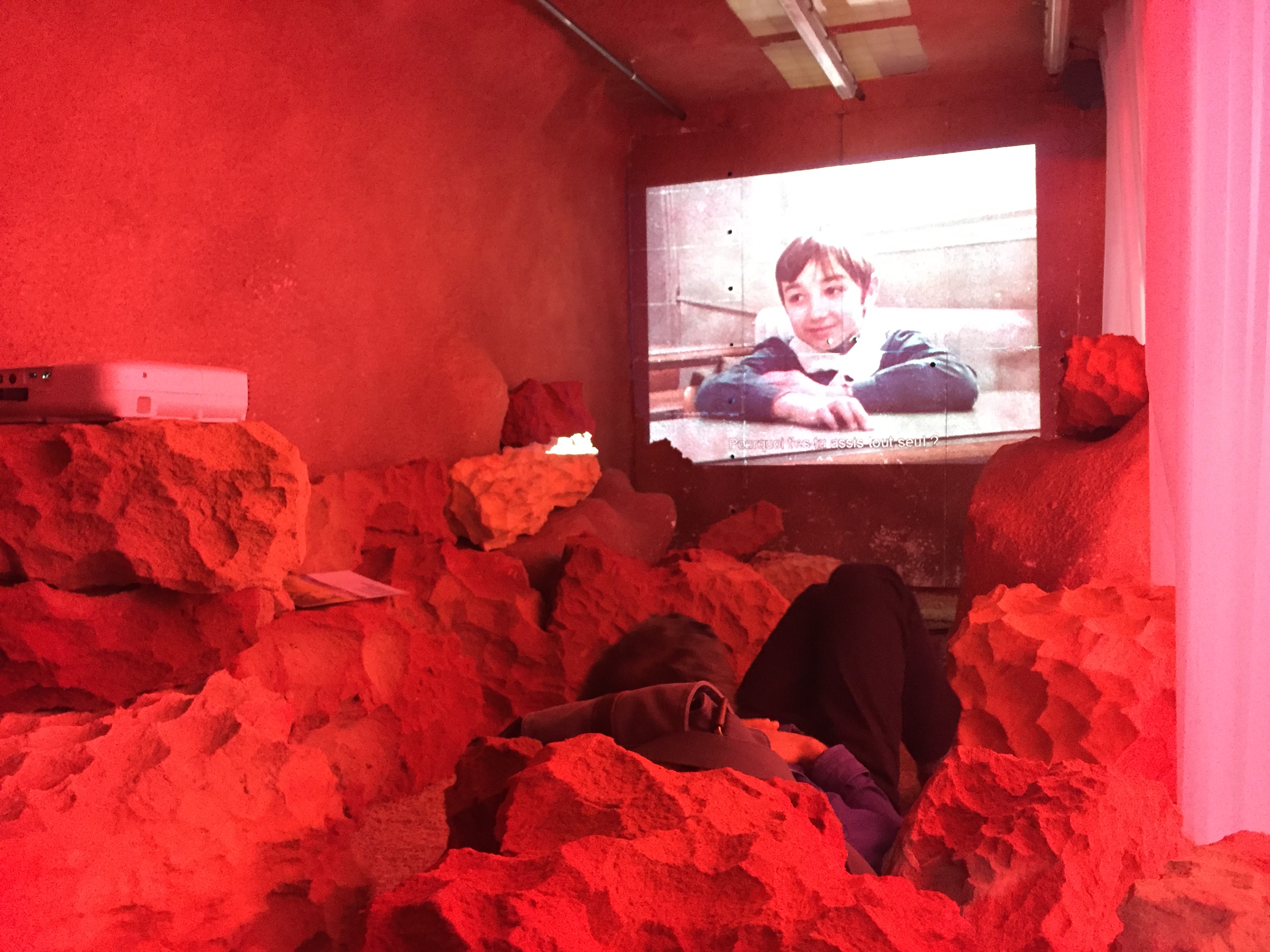The Pavilion of the Ninth School is a place of experimentation. It possesses a brain "a space for record keeping and executive function, and an intestine, “the second brain”, a space for sensory comprehension and sensitive perception.
It also possesses a heart: the programming, whose form is as polymorphous as the daily renewed activities that the pavilion houses. Third part.
In Deschooling Society (1971), Ivan Illich writes that school as an institution is harmful to education, the same way as he writes that the automobile is a hindrance to transportation. And if the school itself was a truck whose driver is no longer the paidagogos, nor the "master" but the permanent learner? The places of the one who drives and the one who follows would no longer be assigned from the start, but would interchange constantly according to the singular knowledge that each one possesses and can transmit (whether it is an art, a craft, a practice, a science ... all in equality). Here in Prague, after Nanterre, before Avignon and other destinations, "we are at the beginning" and we are all "beginners-knowers".
Films screening
1. Hitchhiking, Ivan Illich, 1972
Based on the interview of Ivan Illich with Jean-Marie Domenach INA archive, 1972. French V.O sound + English subtitle
"Sometimes a student learns something from a teacher. And each of us remembers, that sometimes, during his youth, he had a day, a very illuminating hour with a master. But that is something very different from what the school teaches around the world. It teaches the child that he needs the institution to learn." Ivan Illich, 1972
In 1972, during a trip somewhere in France, the meeting of Ivan Illich leads a truck driver to a series of questions about education. From then on, the search for alternative models, examples of other paths of education across Europe becomes a real roadmap.
Through the car radio, the speakers or the truck television, several forms of alternative pedagogies appear to him and guide him towards a school without a defined place. An open school, whose borders remain porous to the inventions of transmission and question the unchallenged ways of what is traditionnally considered as pedagogy.
2. Diary of a schoolmaster (Diario di un maestro), Vittorio De Seta, 1973
On the occasion of the release on June 7, 2019 of "Journal of a schoolmaster" the book at L'Arrachnéen editions. Projection in the Italian original version with French subtitles.
In ancient Greece, the paidagôgos was the slave who had to take the child to school and bring him back.
In Tiburtino, a popular suburb of Rome, no one took them there: they deserted the school. A young schoolmaster goes out to meet them and little by little, students come back to class. Guided by the master, they invent together an alternative program (inherited in particular by the Freinet pedagogy) that involves the life, history and culture of students. The film itself is written daily by everyone, professionals or not, in class or in the surrounding wastelands.
3. Free children of Summerhill , A.S Neil, 1960
Participatory reading in English
In the United Kingdom, the self-managed Summerhill school, founded by A.S Neil in 1921, is an alternative to the school institution and its established narrative. The courses are absolutely optional. Students are free to follow them, do drama, or do nothing!
3. This kid, Renaud Victor, 95min, 1976
Original version in French
Should we redefine the relation of the master and the pupil? In the Cévennes (France), non-professional educators are trying to make their own voice heard, or only the presence, "out of language" of some autistic children, deemed uneducateable, incurable by specialists. They accompany the immutable paths of children. The "Deligny Tentative", is not an institution, nor a counterinstitution, it is a place of existence where the child can start his own history.
4."En râchachant", Danièle Huillet et Jean-Marie Strobe, 7min, 1982
Original French version with English subtitles
Should we refuse to play the game of compulsory school, like the subversive Ernesto, who no longer goes to class because, at school, he says, we teach him things he does not know?
To read the previous parts of the article:
- First part
- Second part

